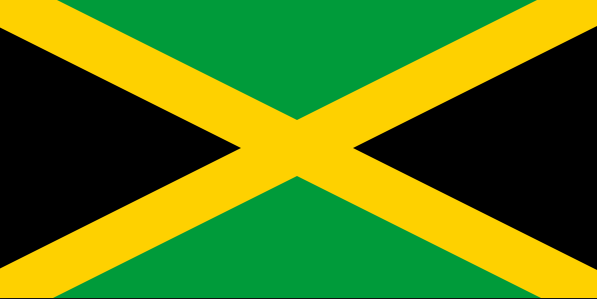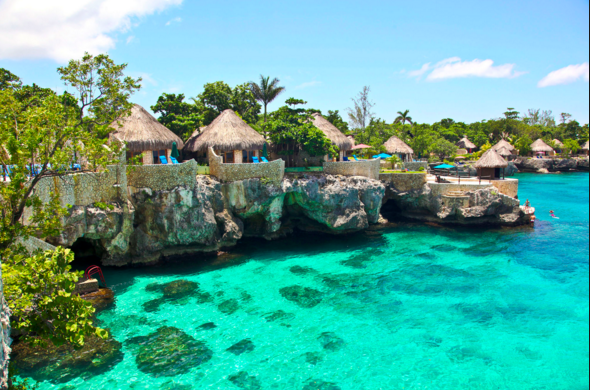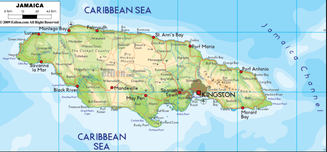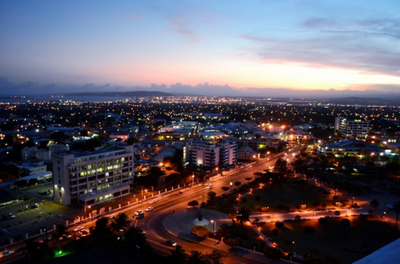Association of Caribbean Occupational Therapist
Jamaica
Jamaica is an island nation located in the Greater Antilles. It is 234 Kilometers long by 80 Kilometers wide. It is situated in the Caribbean Sea, south of Cuba and west of Haiti. Its indigenous people were Taino Arawaks who named the island Xaymaca, meaning the “ Land of Wood and Water”. It was colonized by the Spanish and later by the British. Jamaica gained independence in August of 1962. The primary language is English with a colloquial language known as Patois. The country is still a part of the commonwealth and also enjoys being a part of Caricom. The population is 2.8 million people. The capital of Jamaica is Kingston. The estimated per capita income is $6,234.00 per annum.
ETHNICITY
Jamaica’s motto is “Out of Many One People” due to a very varied ethnic population. The statistics according to the University of the West indies are as follows: Jamaicans of African descent represent 92.1% of the population, followed by 6.1% Afro-European or Brown, 0.8% East Indian and Afro-East Indian, >0.8 % Caucasian, 0.4% Chinese and 0.2% other.
RELIGION
Religions: Protestant 64.8% (includes Seventh Day Adventist 12.0%, Pentecostal 11.0%, Other Church of God 9.2%, New Testament Church of God 7.2%, Baptist 6.7%, Church of God in Jamaica 4.8%, Church of God of Prophecy 4.5%, Anglican 2.8%, United Church 2.1%, Methodist 1.6%, Revived 1.4%, Brethren 0.9%, and Moravian 0.7 %
ETHNICITY
Jamaica’s motto is “Out of Many One People” due to a very varied ethnic population. The statistics according to the University of the West indies are as follows: Jamaicans of African descent represent 92.1% of the population, followed by 6.1% Afro-European or Brown, 0.8% East Indian and Afro-East Indian, >0.8 % Caucasian, 0.4% Chinese and 0.2% other.
RELIGION
Religions: Protestant 64.8% (includes Seventh Day Adventist 12.0%, Pentecostal 11.0%, Other Church of God 9.2%, New Testament Church of God 7.2%, Baptist 6.7%, Church of God in Jamaica 4.8%, Church of God of Prophecy 4.5%, Anglican 2.8%, United Church 2.1%, Methodist 1.6%, Revived 1.4%, Brethren 0.9%, and Moravian 0.7 %
In 2023, 91% of the population had access to safe drinking water and 86.5% had adequate sanitation and life expectancy averages 76 years for both men and women.
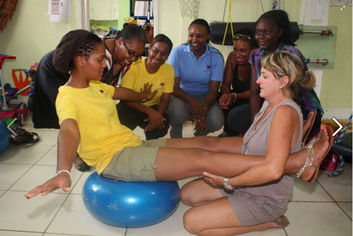
Delivery of OT Services in Country
Occupational Therapy is a Licensed profession in Jamaica and is Governed by the Ministry of Health through the Council of Professions Supplementary to Medicine (CPSM) CPSM website . All Occupational Therapists practicing in Jamaica, whether paid or voluntary, must register with the CPSM. Volunteers are granted a provisional license. Information on registration procedures can be found here Registration form.
Currently there are less than 10 Occupational Therapists working on the Island. There are currently 2 therapists in the government sector, there is therefore a great need in schools, hospitals, rehabilitation centres and NGOs. Inadequate occupational therapy services is a direct result of the absence of a local training program. For Occupational Therapy and other Health Care positions with the Ministry of Health Jamaica click here Job vacancies .
OCCUPATIONAL THERAPISTS WORK IN THE FOLLOWING SETTINGS IN JAMAICA
Occupational Therapy is a Licensed profession in Jamaica and is Governed by the Ministry of Health through the Council of Professions Supplementary to Medicine (CPSM) CPSM website . All Occupational Therapists practicing in Jamaica, whether paid or voluntary, must register with the CPSM. Volunteers are granted a provisional license. Information on registration procedures can be found here Registration form.
Currently there are less than 10 Occupational Therapists working on the Island. There are currently 2 therapists in the government sector, there is therefore a great need in schools, hospitals, rehabilitation centres and NGOs. Inadequate occupational therapy services is a direct result of the absence of a local training program. For Occupational Therapy and other Health Care positions with the Ministry of Health Jamaica click here Job vacancies .
OCCUPATIONAL THERAPISTS WORK IN THE FOLLOWING SETTINGS IN JAMAICA
- Community services
- Pediatric clinics
- Psychiatric institutions
- Schools
- Private adult rehabilitation -physical disability
Country Representative
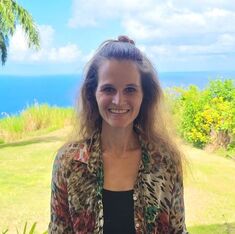
Mara Nelson
Email: [email protected]
Phone: +1 876-236-4182
Website: http://www.occupationaltherapyjamaica.com
Facebook: Occupational Therapy Association of Jamaica
Email: [email protected]
Phone: +1 876-236-4182
Website: http://www.occupationaltherapyjamaica.com
Facebook: Occupational Therapy Association of Jamaica
